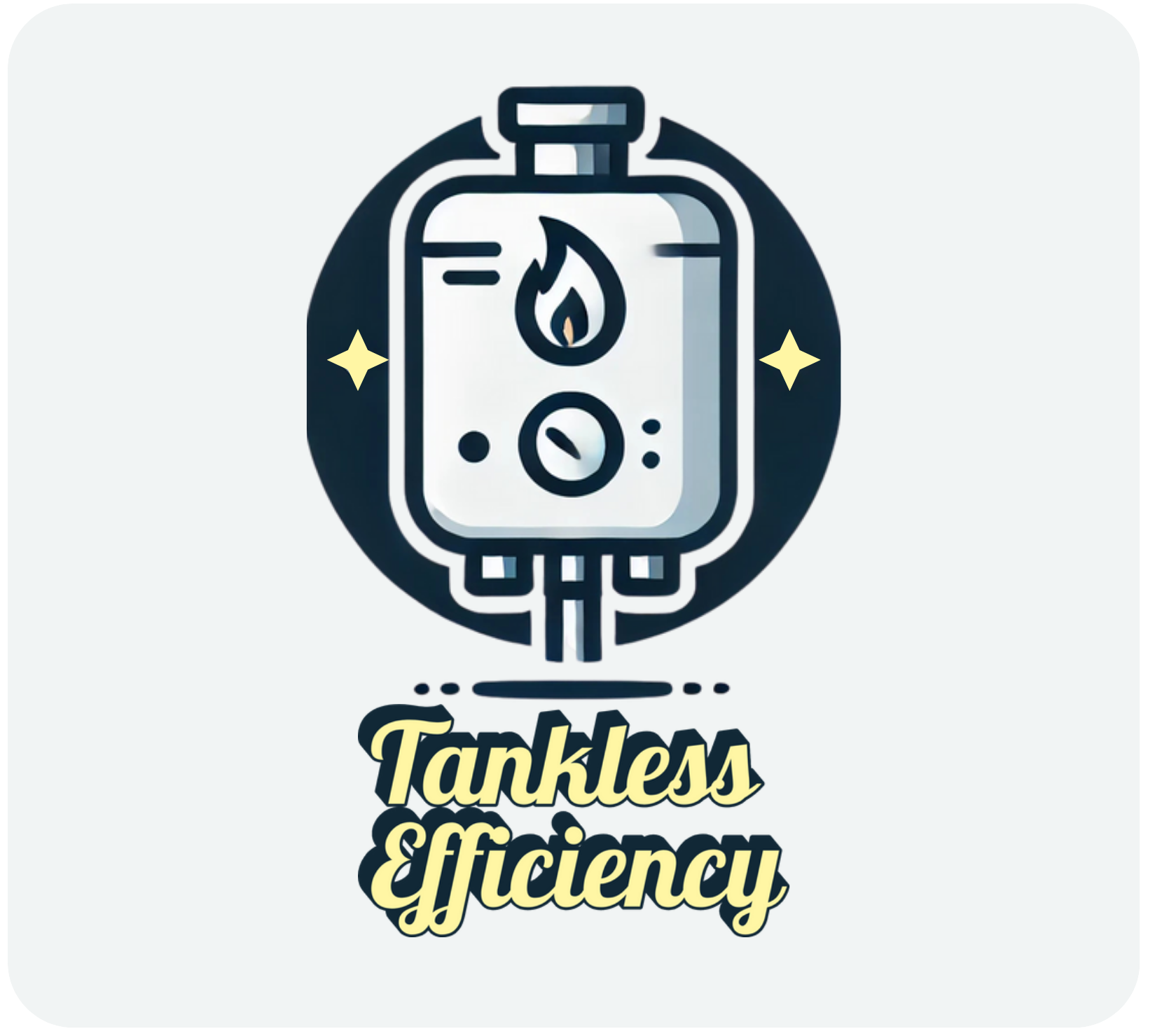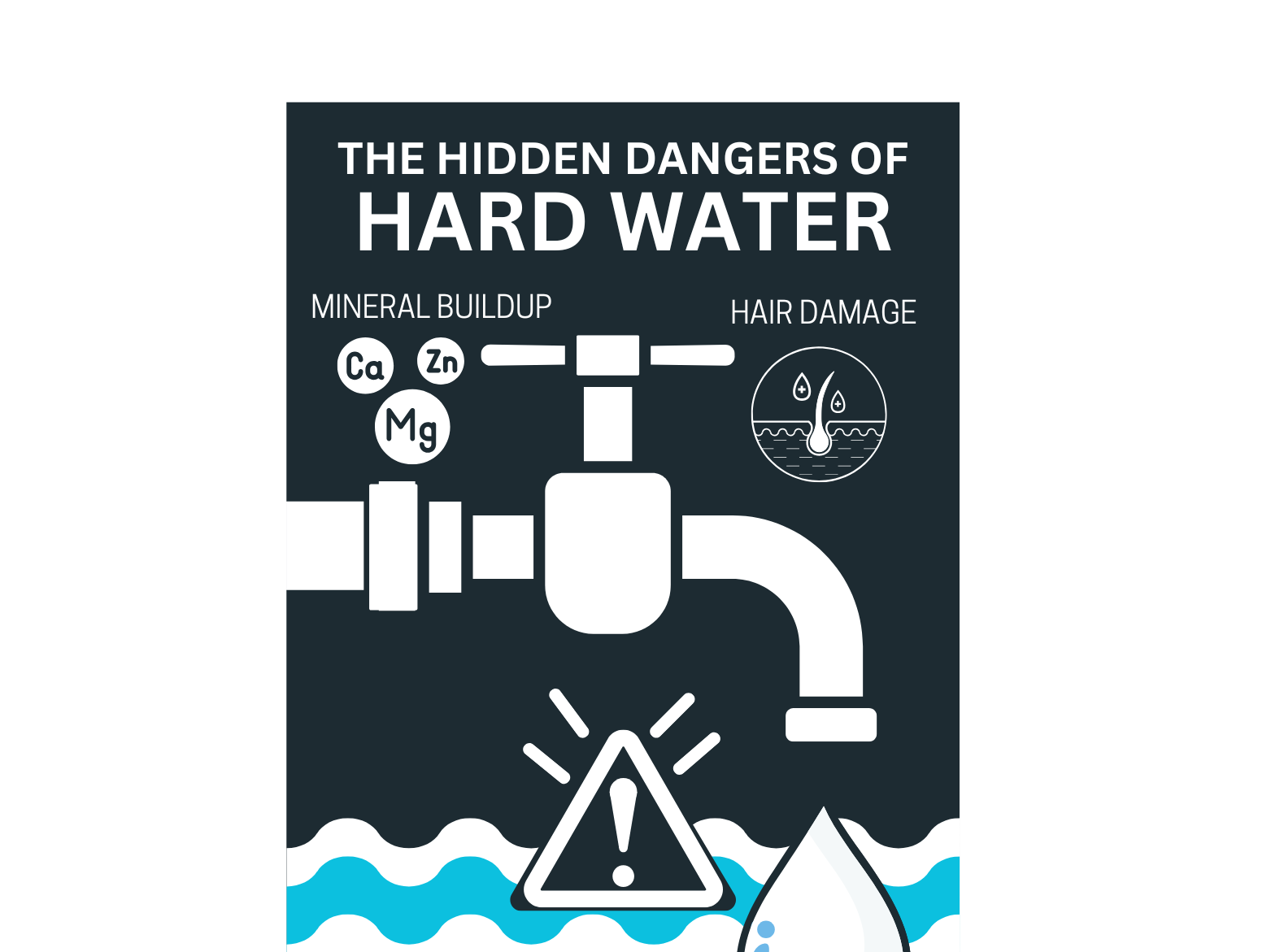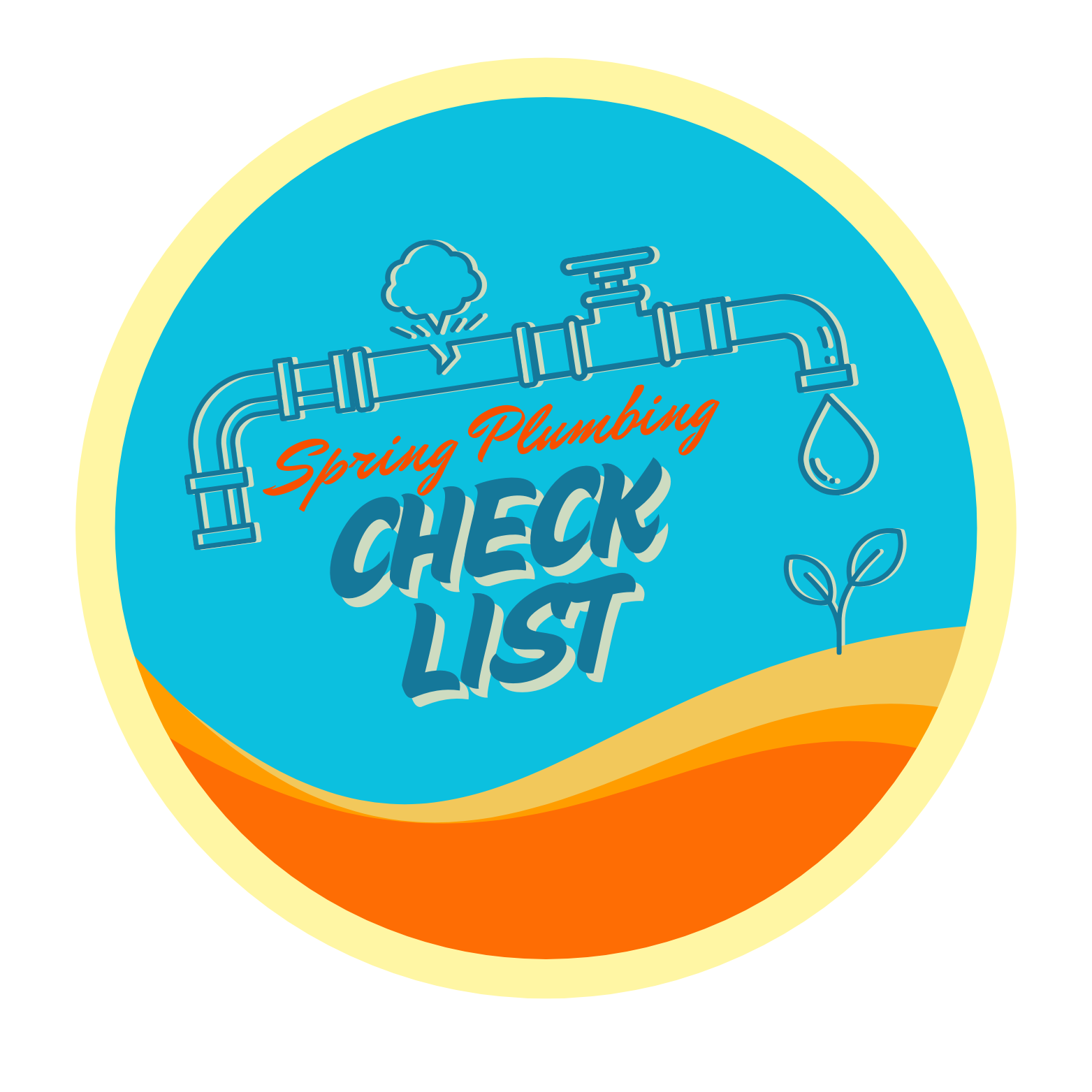What's in Your Water?
Uncovering Hidden Risks (and How to Treat Them)
Have you been getting calls and notices in the mail about the water in your area? Many Pennsylvania homeowners assume their water is clean — but hidden beneath the surface may be contaminants and chemicals that can damage your health, home, and plumbing system.
Let’s break down the most common culprits found in residential water supplies and the risks they bring. (Don’t worry — all of these issues are treatable with proper water treatment systems.)
At the bottom of this post is a quick quiz to find out more about your water!
HARD WATER
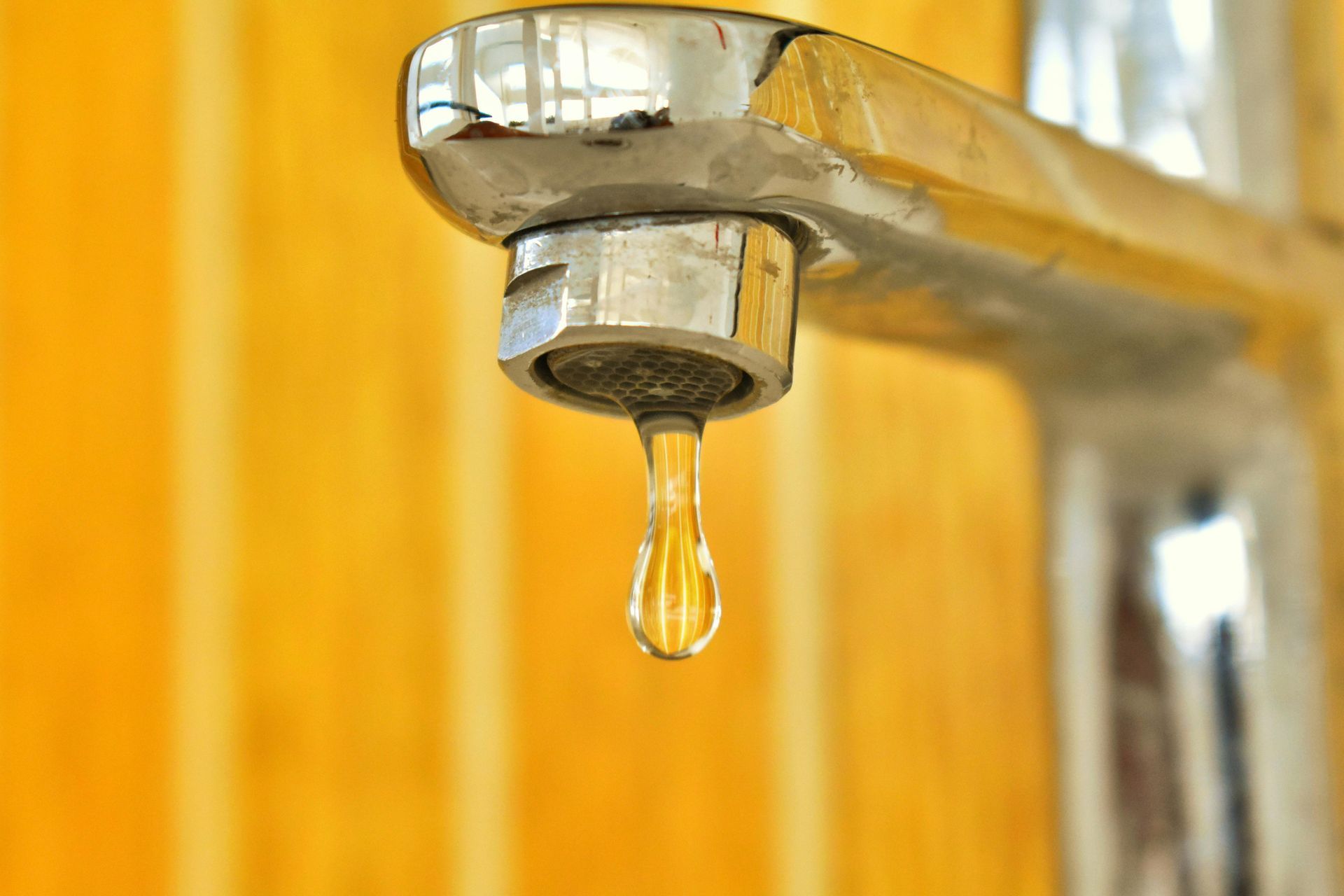
What It Is:
Hard water contains high levels of minerals like calcium and magnesium. It’s common in PA and is most visible through chalky white buildup on faucets, dishes, and glass shower doors.
Side Effects:
• Dry, itchy skin and brittle hair
• Soap doesn’t lather well, making it harder to clean clothes, dishes, or yourself
• Limescale buildup inside appliances (like dishwashers, hot water heaters, faucets, and coffee makers), reducing efficiency and lifespan
• Higher energy bills due to mineral-coated heating elements
Damage to Your Home:
Over time, hard water leaves behind scale that clogs pipes, reduces water flow, and corrodes fixtures.
👉 Don’t worry — hard water is easily treated with a professionally installed water softener.
CHLORINE IN YOUR WATER
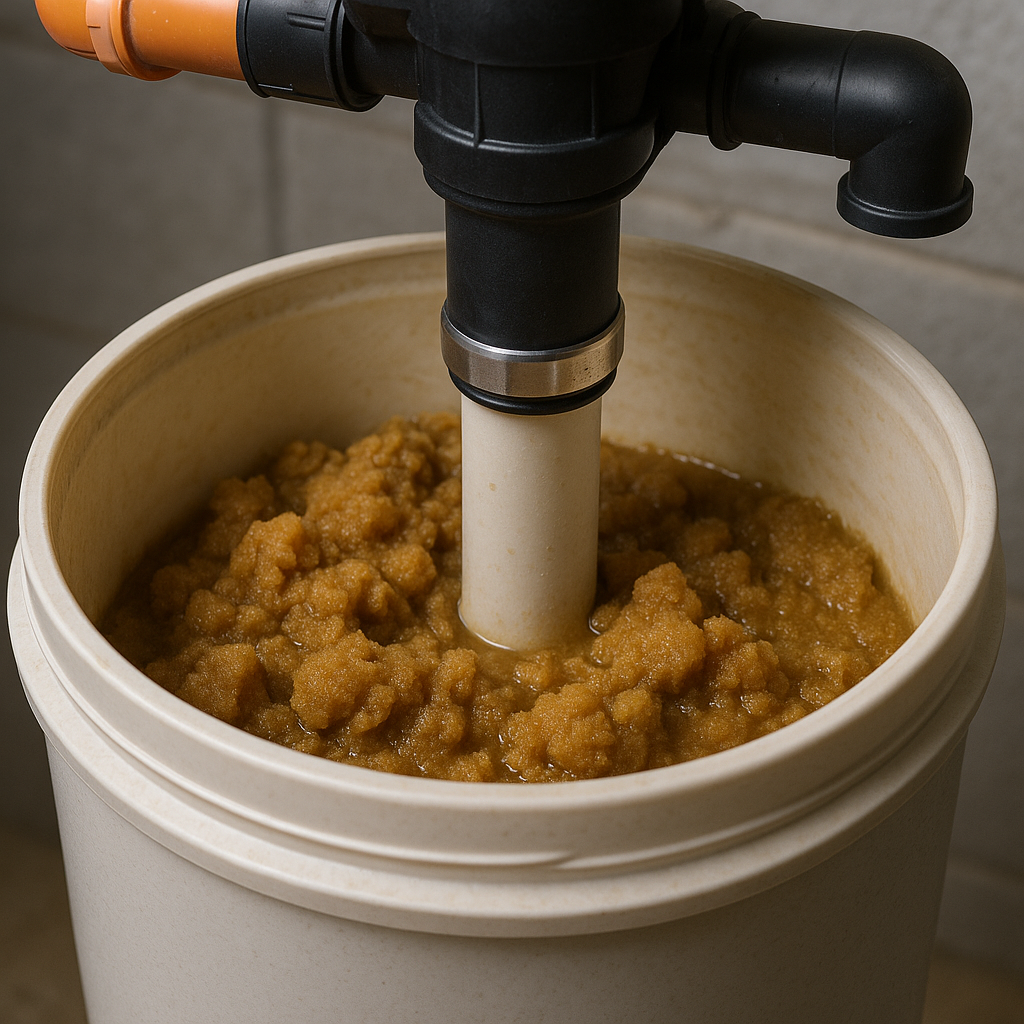
What It Is:
Chlorine is added by municipalities to kill bacteria and viruses in your drinking water. But while it can be effective as a disinfectant, it brings its own risks. Municipalities are required to keep the levels of Chlorine and other chemicals to a minimum but are not required to reduce it to zero.
Side Effects & Risks:
- When chlorine becomes airborne as steam (think hot showers or boiling water), it can irritate your lungs and skin. Remember: chlorine is a gas.
- Showers, dishwashers, boiling water on the stove, coffee makers, and anything else that produces steam.
- If you already have a water softener, chlorine in the water can break down the resin beads, turning them into a sludge that clogs the system and ruins its performance.
- May give water a bleach-like smell or unpleasant taste
Damage to Your Home:
Corrosive chlorine can eat away at rubber seals in plumbing fixtures and reduce the lifespan of water heaters and filtration systems.
👉 Don’t worry — chlorine can be neutralized with a carbon filtration system or dechlorinator.
PFOS & PFAS ("Forever Chemicals")
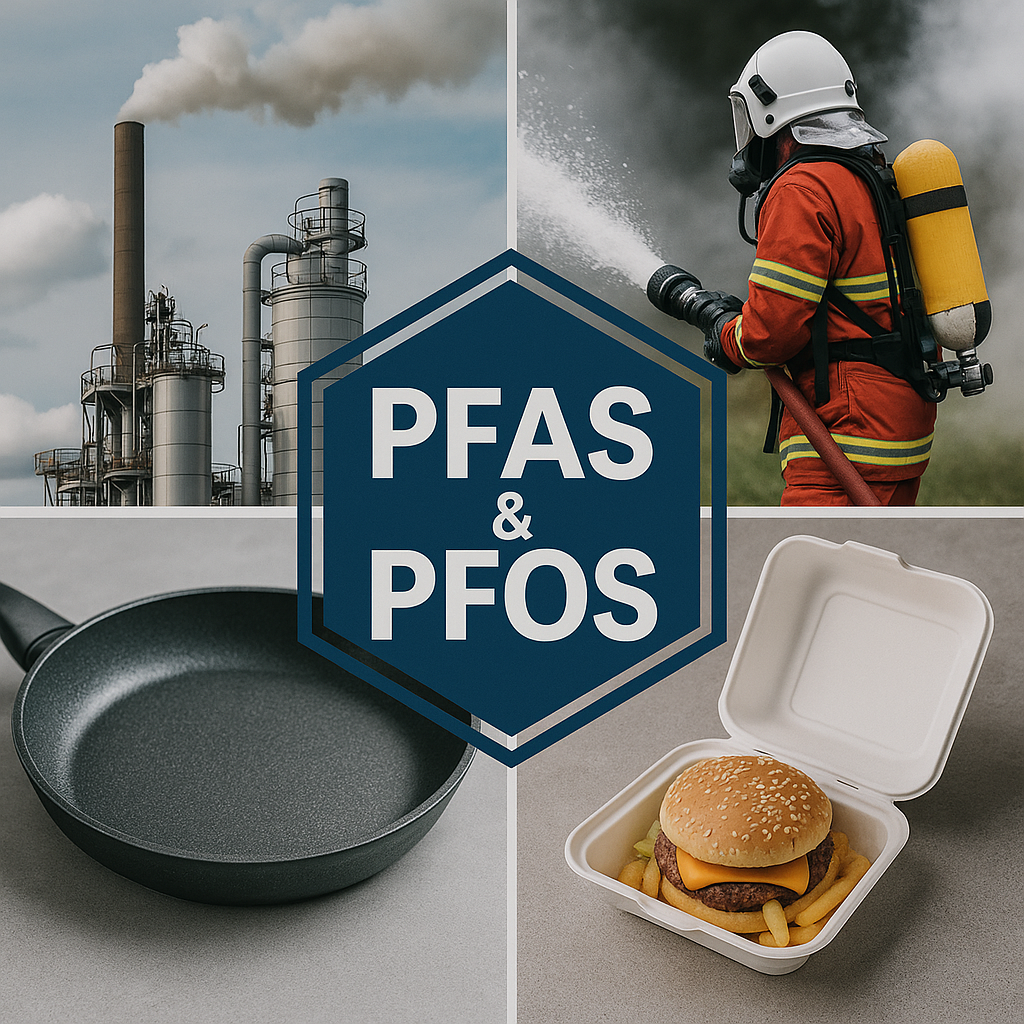
What They Are:
PFOS (Perfluorooctane sulfonate) and PFAS (Per- and polyfluoroalkyl substances) are synthetic chemicals used since the 1940s in firefighting foam, non-stick cookware, water-repellent fabrics, and fast-food wrappers. They’re often referred to as
"forever chemicals" because they don’t break down in the environment — or in your body. These chemicals are the hardest to test for and take the most effort to filter out.
Where They Come From:
They often enter groundwater supplies from industrial sites, military bases, or landfills.
Potential Harms:
- Linked to thyroid issues, immune system effects, and certain cancers
- May impact growth, fertility, and cholesterol levels
- Many health effects are still being studied, and long-term risks remain uncertain
👉 Don’t worry — PFOS and PFAS can be treated with specialized filtration systems like activated carbon or reverse osmosis.
E. COLI IN YOUR WATER
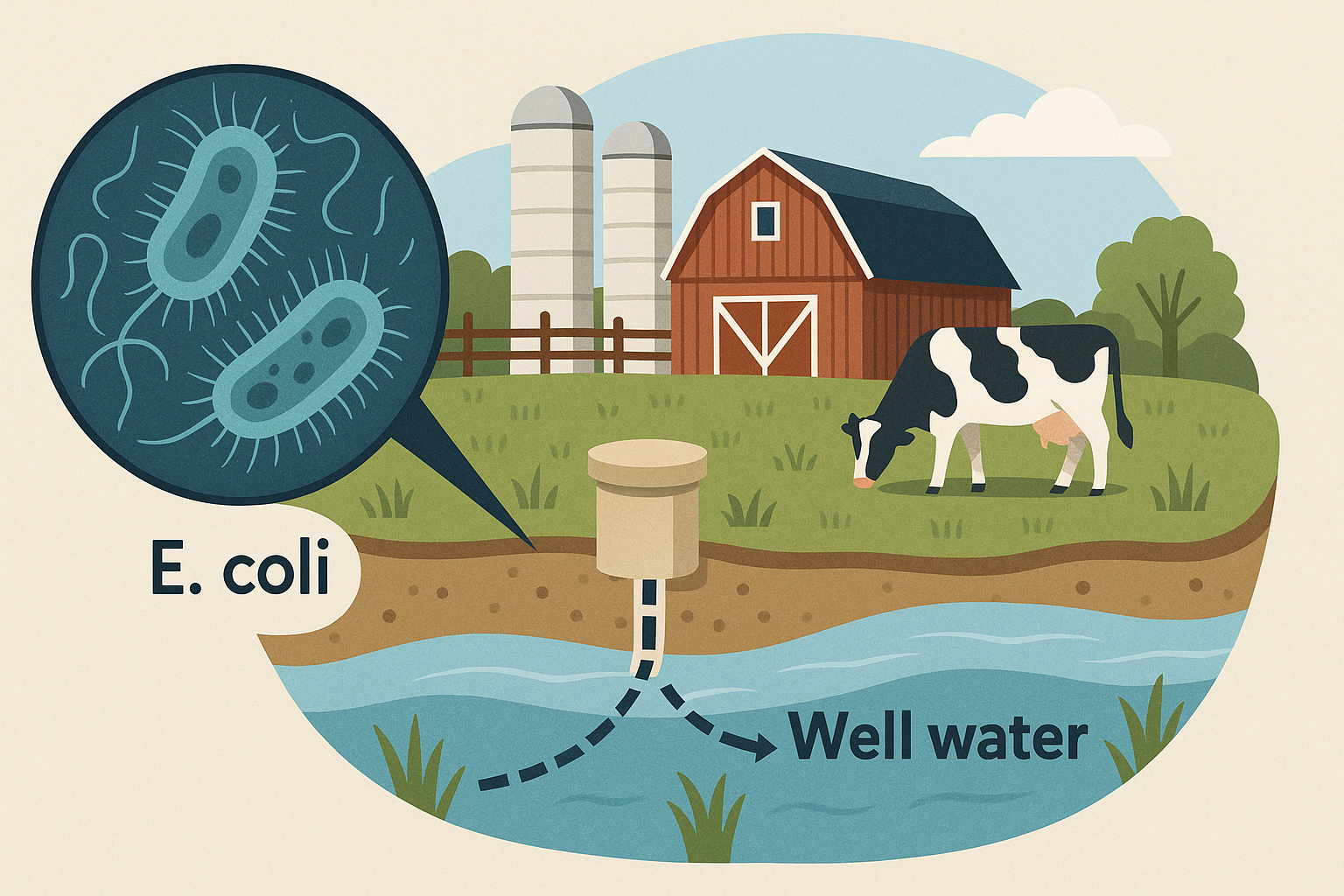
What It Is:
E. coli (Escherichia coli) is a bacteria that indicates fecal contamination. While some strains are harmless, others can cause severe illness.
Where It Comes From:
- Most commonly found in private wells, especially those located near farms, septic systems, or areas with heavy runoff
- Often introduced after heavy rains or flooding
Side Effects & Health Risks:
- Stomach cramps, diarrhea, nausea, and vomiting
- Severe cases can lead to kidney damage, especially in children and the elderly
How It Affects Your Water Supply:
E. coli presence means other dangerous microbes may be in the water too. It's a red flag for broader sanitation issues.
👉 Don’t worry — E. coli can be eliminated with UV disinfection and appropriate filtration systems.
TAKE ACTION: KNOW WHAT’S IN YOUR WATER
Most of these problems are invisible — until they cause real damage. At Snyder’s Plumbing, HVAC & Remodeling, we offer water testing and customized treatment plans that fit your home’s needs. With finance options and custom combinations we can ensure you have safe quality water that is affordable and efficient!

What’s in Your Water?
Take our quick form to find out how your water measures up and what treatment options are best for you.
Start the Water QuizShare this post!

